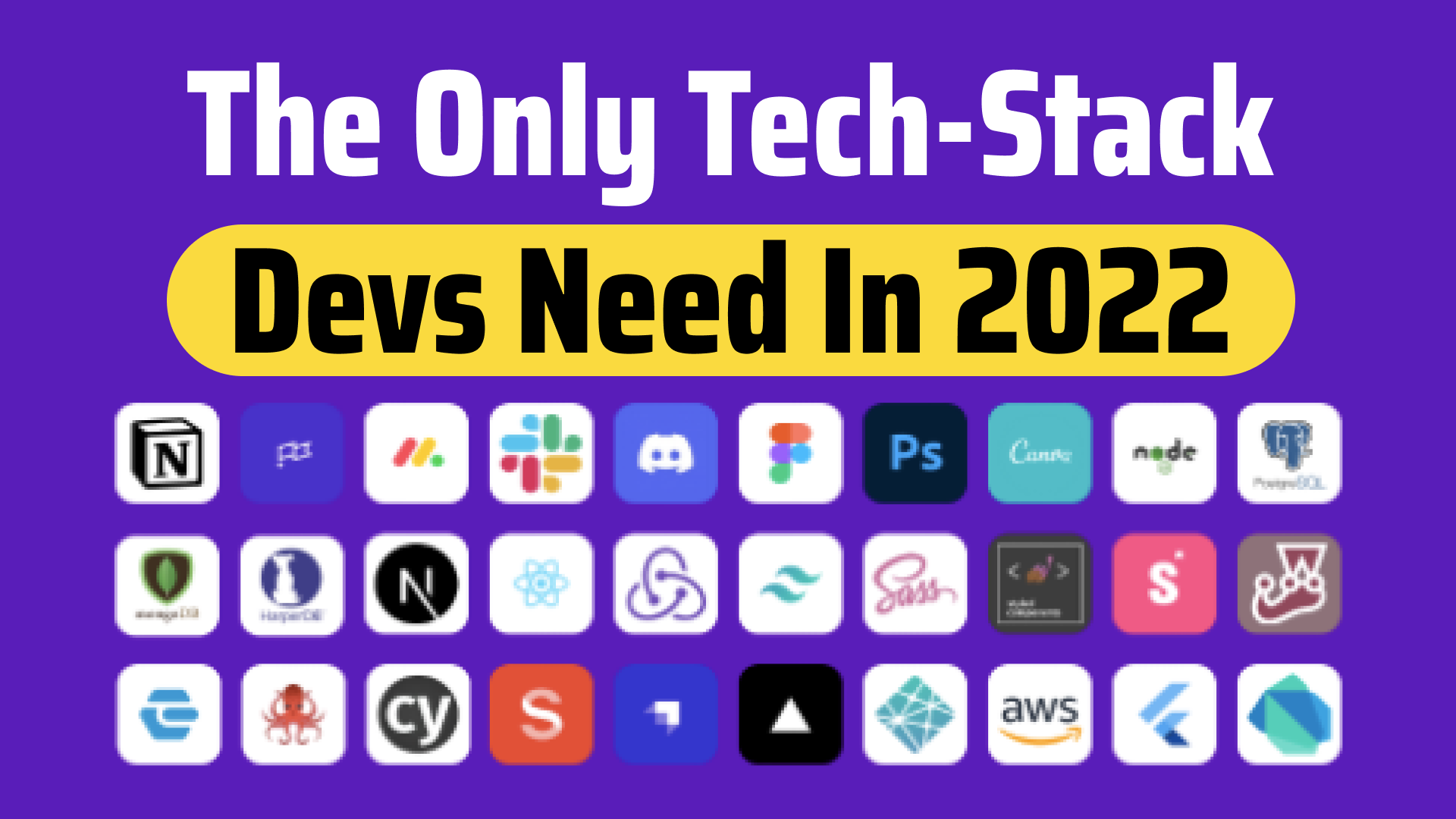Every Full-Stack Developer Should Use This Tech Stack In 2022
Updated: February 19, 2022•2 min read

Project Management
- Notion — For overall project management, documentation, notes and wikis
- Clubhouse / Monday — Clubhouse or Monday to manage the development process itself. Both can be Incorporated into a CI/CD workflow so builds are done automatically and changes are reflected in the staging and production CI/CD branches
- Discord — For communication between teams
Design
- Figma — Figma is a modern cross platform design tool with sharing and collaboration built in
- Photoshop / Canva — Photoshop is the industry standard for doing graphic design work and Canva is a great image editing tool
Back-End
- Node.js — A popular modern back-end framework
- PostgreSQL — A popular SQL Database
- MongoDB — A popular NoSQL Database
Front-End
- NextJS — NextJS for generating a static website
- Tailwind — Tailwind for writing the CSS, as its a modern popular framework basically allowing you to avoid writing your own custom CSS from scratch leading to faster development workflows
- CSS/SASS / styled-components — This can be used as a different option to Tailwind, giving you more customization options for the components in React
- Storybook — This is the main build process for creating the components because it allows for modularity. With Storybook components are created in isolation inside of a dynamic library that can be updated and shared across the business
- Jest and Enzyme, React Testing Library and Cypress — TDD using unit tests for the code and components before they are sent to production and Cypress for end to end testing
- Sanity / Strapi — Sanity and Strapi are headless CMS, and are used to publish the content with the use of a GUI (optional tools)
- Vercel / Netlify / AWS — The CI/CD provider combined with GitHub, it makes it easy to review and promote changes as they’re developed
Mobile
- Ionic — Cross-platform apps
- React Native / Redux — React Native for creating cross platform mobile apps and Redux for state management
- Flutter/Dart — Flutter and Dart for creating cross platform mobile apps
Final notes
Don’t forget to clap 👏 in the comment section below if you learned something new
